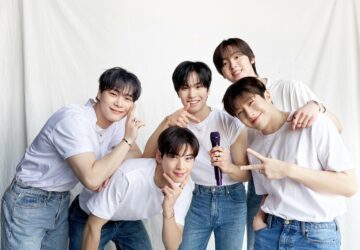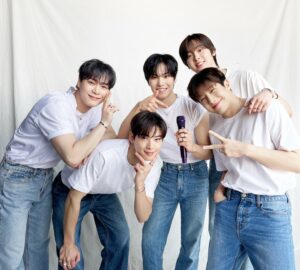With a majority of K-pop groups fading from the limelight (read: getting disbanded) after only a few years and even the most durable of idols totally shifting their careers into acting or TV hosting, you may wonder if there are personalities who started off their careers as singers and are still going strong mainly as K-pop idols up to now. There are two, actually, and it just so happens they are also still connected to the country’s representative music company – SM Entertainment. Let’s look into the everlasting careers of KangTa and BoA.
KangTa
When we talk about idols who have stood the test of time, nobody pretty much comes close to the level of KangTa. Originally named Ahn Chil Hyun, KangTa is a first-generation idol and has kept at it for decades, and is one of the few, if not the only, “senior” idols who are still active in the music industry as idols. Most of KangTa’s contemporaries have diversified their careers by getting into other ventures such as acting (e.g., Shinhwa’s Eric) or variety show hosting (e.g., KangTa’s groupmate Moon Heejun). But not KangTa. He achieved immense popularity as one of the five members of the legendary boy group H.O.T. and up to now, has continued his career in music close to three decades later.
As an SM Entertainment trainee, KangTa was actually getting side jobs already but as a backup dancer, not as a singer. When he was finally included in a group with Moon Hee Joon, Jang Woo Hyuk, Tony An, and Lee Jae Won, they were called H.O.T, short for Highfive Of Teenagers, which eventually became the blueprint for what we know today as the k-pop boy band.
You know that theory that Koreans adapt trends from other countries and mold them into distinctly Korean (and arguably vastly improved) concepts? That’s what H.O.T practically was. With the group explosion in the ‘90s from New Kids on the Block to N’Sync in the US and E-17 and Boyzone in the British Isles, the Koreans (SM Entertainment to be precise) took this “voal group” idea and ran away with it. Not only did they just copy the Ron Pearlman prototype of gathering 5 to 8 pretty boys and make them sing, they have to put the Korean stamp to it by assigning these boys particular positions to make sure the entirety of the group has something for everyone – Heejun was the leader, Woohyuk was the main rapper, Jaewoon was the youngest member, Tony was the all-arounder, and KangTa was surprisingly the main vocalist of the group, not to mention that he (with Tony) were the most popular members based on their looks.
While the other members decided to leave SM and pursue other careers, KangTa decided to continue as an SM Entertainment talent and as a solo artist, re-debuting with a solo album Polaris in 2001. He continued his career with a couple more albums, Pinetree and Persona, all of which established him as a successful solo act. After completing his mandatory military service, KangTa also released songs in Mandarin, signalling his entry into the Chinese music market.
KangTa’s other ventures in music include being part of a group called called ‘S’ (Supreme) with Shin Hyesung (Shinhwa) and singer-actor Lee Jihoon. Later he became a part of a duo with Taiwanese singer Vanness Wu (of Meteor Garden fame). KangTa has also been featured on other SM artists’ songs, particularly with BoA and Taeyeon and has taken part in the writing of numerous tracks, proving he has also developed top-notch songwriting skills.
To All the Boys I’ve Loved Before
TVING <케이팝 제너레이션> Ep.3
➫2022.02.09 4PM (KST)#KPOP_GENERATION #EP3_내가사랑했던_모든남자들에게#KANGTA#SUPERJUNIOR #LEETEUK#SHINee #MINHO#EXO #SUHO#NCT #DOYOUNG pic.twitter.com/rxRkyPfjqn— SMTOWN (@SMTOWNGLOBAL) February 9, 2023
But along with his accomplished solo singing career, KangTa also got himself into acting along with the other idols. He has appeared on both Chinese and Korean TV dramas and movies, all of which have been successful.
KangTa has since celebrated his 20th debut anniversary with SM Entertainment and carried out his 25th debut anniversary in 2021. He hosted the SM Congress 2021 where the remastering of about 300 songs was announced. In 2022, he made his return to solo music with a full album Eyes on You, released in September.
BoA
Some regard BoA as “the female KangTa,” alluding to her loyalty to SM Entertainment, while some dub her the “Queen of K-pop,” which refers to her pioneering efforts and staying power in the rather fickle Korean music industry. Both are correct, as BoA has spent her more than two decades with the same company and she remains active in the Korean entertainment industry even after 21 years after her debut. When it comes to K-pop relevance, BoA has things mastered, from releasing new songs to appearing on several TV shows as an emcee, judge or coach.
Kwon Boah, professionally known as BoA, is actually SM Entertainment’s first solo artist. Not only that; she is the youngest idol to enter the K-pop industry during her time, releasing her debut album in South Korea at the age of thirteen. ID; Peace B was released in the year 2000, and that time, KangTa was still in the final stretches of his career in H.O.T, which means that Queen BoA is really SME’s first solo artist and she is actually KangTa’s seonbaenim when it comes to being a solo artist.
A couple of years after her Korean debut, BoA ventured to Japan and debuted in March 2002 via the album Listen to My Heart. And just in case you’re wondering, yes, BoA debuted in Japan on her own at age 15. Things went fast forward for the queen as her debut album shot up to number 1 in Japan, while she still had to return to Korea to prepare for her academic career. But then, she already broke through the Japanese market that it was the Japanese TV and radio stations that had to adjust, going to Seoul to tape BoA’s Japanese performances instead of the artist going to Tokyo to stretch her “15 minutes of fame” (of course, we all now know in hindsight that BoA’s Japanese following was never just 15 minutes).
And mind you, BoA’s successful Japanese debut was not an exaggerated breakthrough overly hyped by the Korean press – Listen to My Heart became an RIAJ-certified million-seller topping the Oricon Chart, the first album by a Korean artist to do so.
The Queen of K-pop went on to launch more Korean and Japanese albums, all of which became successful in their respective markets, reaching millions in terms of album sales. She even became the first non-Japanese and non-English language singer to have two albums selling more than a million copies in Japan. During the late 2000s, when female acts like Girls’ Generation and Wonder Girls tried their luck penetrating the US market, BoA did the same with the American single Eat You Up in October 2008. She followed this with her Hollywood movie debut in the dance film Make Your Move 3D, where she played the character Aya.
When BoA renewed her contract with SM Entertainment in 2006 until 2012, she, along with another loyal talent we already mentioned earlier, was given 100,000 shares (valued at approximately USD 1 million) by the company in appreciation of her loyalty with the company.
K-pop diva @BoAkwon will celebrate her 20th debut anniversary with fans by holding a concert on March 11-12 at the Olympic Hall in the Olympic Park in Jamsil, Seoul! Click here for more: https://t.co/LCDYRqTDJG #BoA #보아 pic.twitter.com/m50qz4bTws
— KpopHerald (@Kpop_Herald) February 8, 2023
As with KangTa, BoA also started venturing into other fields once she already established her career as a K-pop icon. She started participating in music production at SM Entertainment and also started appearing on TV in 2013. Among her most notable TV appearances include her stint as the representative judge of SM Entertainment in the first two seasons of K-pop Star (where AKMU, Lee Hi, and Jamie competed), the MC of the second season of Produce 101 (which saw the birth of WANNA ONE), and a judge of both Street Woman Fighter and Street Man Fighter.
Aside from continuously releasing new singles, BoA finally realized one of the very few missing things in her long and illustrious career – becoming a girl group member. Twenty-two years after debuting as a solo artists, SM Entertainment included her in GOT the Beat, a supergroup formed with members of Girls’ Generation (Taeyeon and Hyoyeon), Red Velvet (Wendy and Seulgi), aespa (LKarin and Winter), and the queen herself. Now, she finally say she has experienced everything there is to experience in the Korean entertainment industry – actress on TV, movies, and the stage, emcee, reality show participant, soloist, and now, girl group member!
If their recent activities are to be considered, it seems these two will be staying strong with their careers, not just in the Korean entertainment industry in general, but in the K-pop scene in particular. And with their annual dividends (amounting to millions of US dollars) as SME stockholders, we can also safely conclude that loyalty and longevity in this rather fickle world of K-pop do pay off handsomely!
Featured Image Credit: KangTa Official Twitter







